Inhalants
Cough inhalants are handy remedies that provide swift relief from the respiratory discomfort caused by colds, flu, and congestion. These over-the-counter solutions, available through our online pharmacy help clear your airways and provide quick relief, allowing you to breathe easier when you need it most. Read More…

-
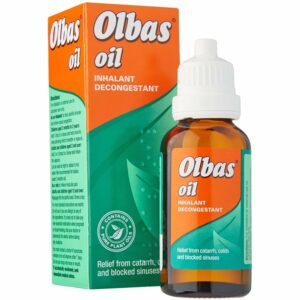
Olbas Oil Inhalant Decongestant 30ml
- Relieves Catarrh, Colds And Blocked Sinuses
- Active Ingredients: Pure Plant Oils
- Non-Greasy
£6.49 Select options -
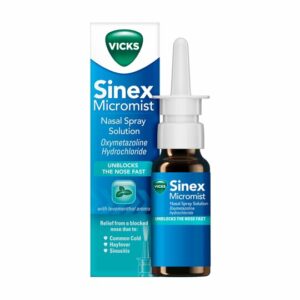
Vicks Sinex Micromist Spray 15ml
- Relieves A Blocked Nose
- Active Ingredients: Oxymetazoline hydrochloride
- Lasts For 6-8 Hours
£5.09 Select options -
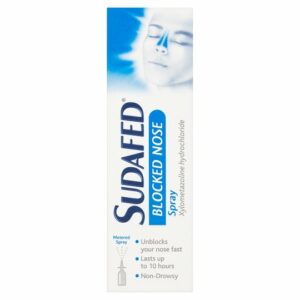
Sudafed Blocked Nose Spray 15ml
- Relieves Blocked Nose And Sinuses
- Active Ingredient: Xylometazoline Hydrochloride
- Non-Drowsy
£4.79 Select options -
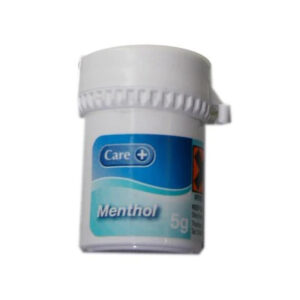
Menthol Crystals 5g
- Effective Relief For Blocked Nose
- Active Ingredient:Menthol Crystals
- Buy With Confidence From UK Registered Pharmacy
£3.09 Add to basket -
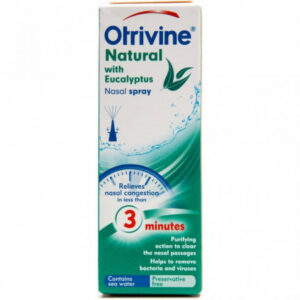
Otrivine Natural Nasal Spray – 20ml
- Relieves A Blocked Nose
- Active Ingredients: Oxymetazoline Hydrochloride
- Lasts Up To 10 Hours
£7.79 Add to basket -
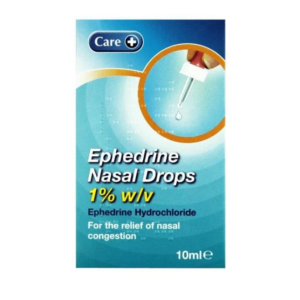
Ephedrine Nasal Drops 1% 10ml
- Effective Relief For Nasal Congestion
- Active Ingredients:Ephedrine
- Buy With Confidence From UK Registered Pharmacy
£4.49 Select options -
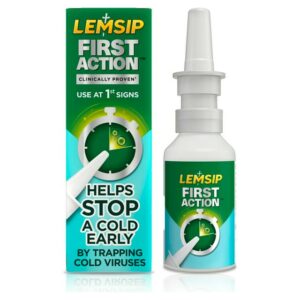
Lemsip First Action Nasal Spray – 20ml
- Helps stop a cold early
- Clinically proven
- Use at the 1st signs of a cold
£7.09 Add to basket -
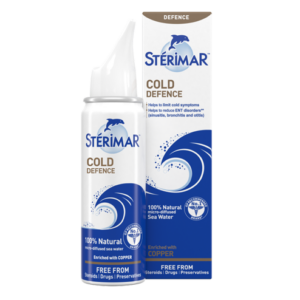
Sterimar Cold Defence – 50ml
- Helps to limit cold symptoms
- 100% natural micro-diffused sea water
- Enriched with copper
£5.94 Add to basket -
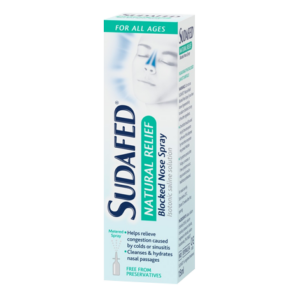
Sudafed Natural Relief Blocked Nose Spray – 15ml
- Helps relieve congestion caused by colds or sinusitis
- Cleanses and hydrates nasal passages
- Preservative free
£5.99 Add to basket -
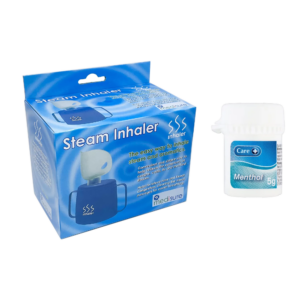
Medisure Steam Inhaler Cup with Menthol Crystals (5g)
- Easy way to inhale steam and aromatics
- Convenient and simple
- Use with Menthol Crystals for easier breathing use
£8.49 Add to basket
-
About: Cough Inhalants
Cough inhalants are a popular choice for those seeking relief from symptoms of coughs, colds, and congestion. These over-the-counter medicines come in various forms, including oils, sprays, and crystals, each designed to provide quick and effective relief. Some of the inhalants we offer include Olbas Oil, which can be inhaled from a tissue or added to hot water, Vicks Sinex Micromist Spray, and Sudafed Blocked Nose Spray. Each product is formulated to target different symptoms, providing comfort during the cold and flu season.
-
Symptoms of Hay Fever
Hay fever, also known as allergic rhinitis, can cause a range of symptoms that inhalants can help alleviate. These symptoms include a runny or blocked nose, sneezing, itchy eyes, and sinus pressure. Inhalants containing menthol or eucalyptus oil, such as Olbas Oil, can provide a cooling sensation that helps soothe irritated nasal passages and relieve congestion. Decongestant sprays like Vicks Sinex Micromist Spray and Sudafed Blocked Nose Spray can also reduce swelling in the nasal passages.
-
Diagnostics
Diagnosing hay fever typically involves a review of your symptoms and medical history. A healthcare professional may also perform a physical examination and recommend allergy testing to identify specific triggers. Once diagnosed, incorporating inhalants into your treatment plan can help manage symptoms, especially during peak allergy seasons. It’s important to use inhalants as directed and consult with a healthcare professional for personalized advice on managing hay fever symptoms.
-
Treatment
In treating coughs and respiratory issues, over-the-counter (OTC) inhalants can be a practical first step for relief. For instance, Olbas Oil Inhalant Decongestant and Vicks Sinex Micromist Spray can clear congestion with active ingredients like pure plant oils and oxymetazoline hydrochloride, respectively.
Sudafed Blocked Nose Spray, with xylometazoline hydrochloride, and Menthol Crystals offer additional options for clearing sinuses and easing breathing.
Such treatments are effective for symptoms of common colds or flu and work by reducing inflammation in the airways or by loosening mucus.
However, if a cough is persistent or accompanied by a more serious condition like bronchitis, medical advice is essential. For example, using a humidifier can help relieve coughs and loosen mucus. Pain relievers like ibuprofen can reduce fever and body aches associated with cold and flu symptoms.
It’s also advised that cough medicines should not be used in children under 12 without proper medical guidance. In such cases, supportive measures like honey (for children over one year), menthol rubs, and hydration can provide relief.
Remember, if symptoms worsen or if the cough persists beyond a few weeks, it’s important to consult with a healthcare provider for a thorough examination and possibly prescription medication.
-
Prevention Strategies
To help prevent respiratory conditions, here are some practical tips:
- Steer clear of tobacco smoke, pollution, and other airborne irritants that can trigger respiratory problems.
- Regular hand washing and maintaining a strong immune system through a balanced diet and regular exercise can help fend off respiratory infections.
- Annual flu shots and other relevant vaccines, like the pneumococcal vaccine, can reduce the risk of respiratory infections.
- Manage allergies with appropriate medications, as they can worsen respiratory symptoms.
- Consider using an air purifier in your home, especially during allergy season or if you live in a high-pollution area.
- Drinking plenty of fluids helps keep the mucous membranes of the respiratory system moist, which can ward off irritants.
- Cover your mouth when coughing or sneezing and avoid close contact with individuals who have respiratory infections.
These prevention strategies can significantly reduce the likelihood of developing cough-related issues and other respiratory conditions.












